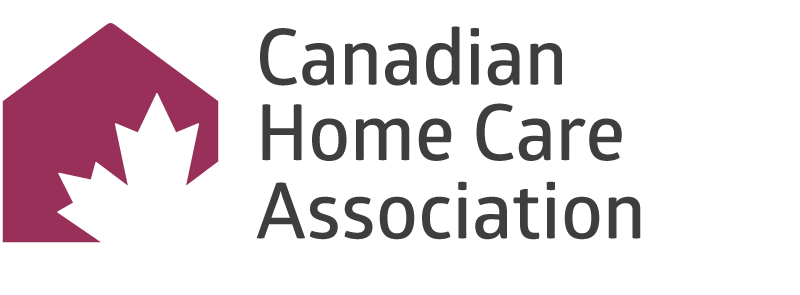eiCOMPASS SPRINT COLLABORATIVE HUB
FOR SPRINT TEAMS
FOR SPRINT TEAMS
(Competency Framework and Self-Assessments)
A national standard for palliative care competencies; outlining core skills, knowledge, and attitudes for five healthcare disciplines (nurses, personal support workers, physicians, social workers, and volunteers).
Identify knowledge gaps within your frontline team across the domains of the Palliative Care Competency Framework. This guide includes:
Testimonials from Subject Matter Experts on the value of the Competency Framework for education, quality improvement, standardization, and patient care.
(Skills, Knowledge, Attitude)
This curated list features resources tailored to address specific learning needs within each palliative care domain, ensuring comprehensive and practical support for continued skill development.
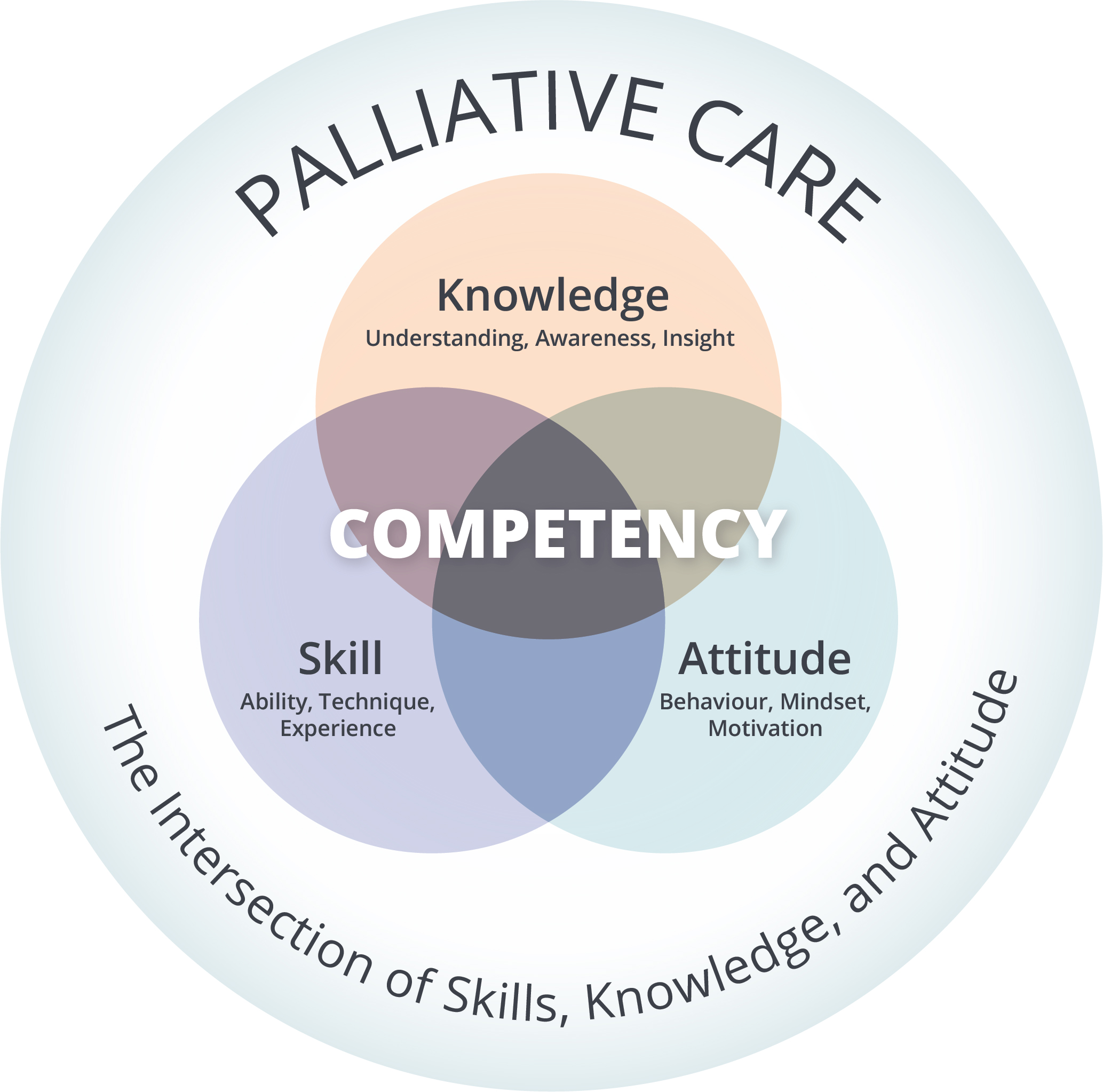
These guides support home care providers in facilitating clear and empathetic conversations, helping families confidently manage emergencies while awaiting professional support.
Each guide includes:
1. Conversation Checklist: Tips and approaches for addressing challenging conversations.
2. Clinical Information: Signs, symptoms, risk factors, and care strategies for safe home management.
3.Caregiver Tool: Techniques, advice, and guidance in handling emergencies.
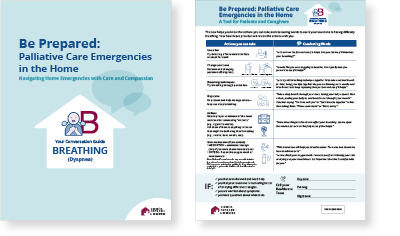
For convenience, all six guides are accessible for frontline staff under Enhancing Competency: Managing Emergencies with Compassion
Need Help Using the Guides?
Watch this explainer video that details how and when the guides can be used.
Led by Nadine Valk, Integral Professional Coach™ and palliative care expert, each session equips healthcare providers with techniques and practical tools to build emotional resilience, enhance communication, and deliver compassionate, patient-centered care.
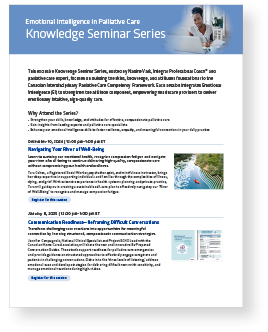
Navigating Your River of Well-Being
Communication Readiness: Reframing Difficult Conversations
Adapting Communication for Kids: Talking About Illness and Loss
Communication and Shared Decision-Making
Feb 19, 2025, 12:00 PM–1:00 PM ET
Attending to Grief and Loss: Empathy in Action
Mar 19, 2025, 12:00 PM–1:00 PM ET
Download the Knowledge Seminar Flyer For promotion of the knowledge seminars and distribution amongst the front-line team.
For convenient access and registration, staff can find all resources directly under Enhancing Competency Knowledge Seminar Series
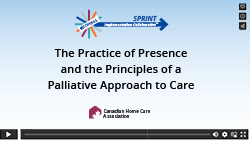
Emotional Self-Awareness and the Practice of Presence
Domain 1 – Principles of a Palliative Approach to Care
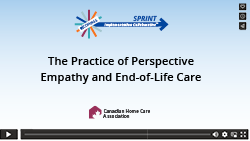
The Importance of Empathy Practice of Perspective
Domain 6 – Last Days and Hours
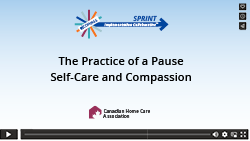
Promote Personal Well-Being the Practice of a Pause
Domain 8 – Self-Care
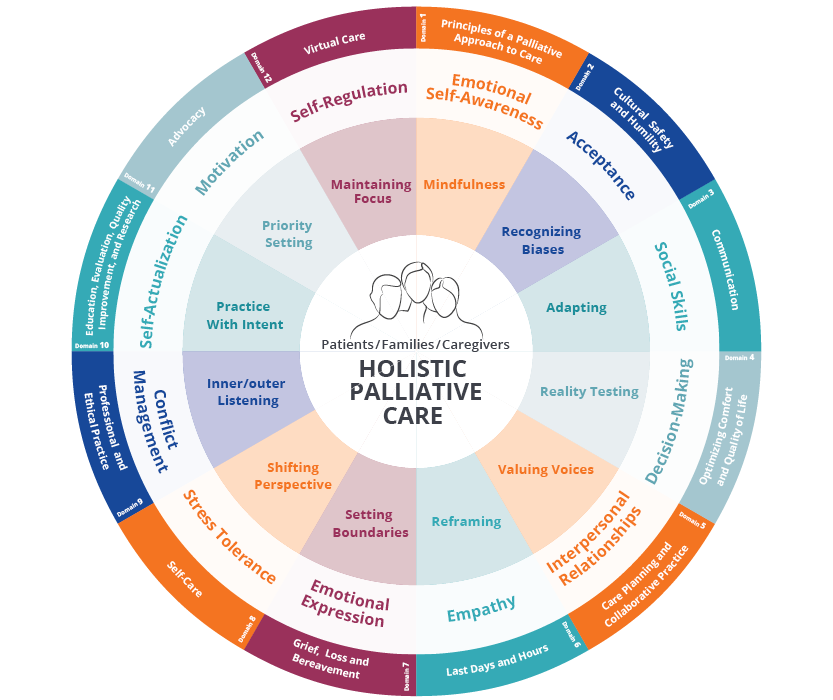 EI Microlearning Course Overview
EI Microlearning Course Overview
A backgrounder detailing the CHCA EI Training Courses, their intended use, and information on the specific course content.
Accessing the Courses
A one-page instruction sheet designed to guide staff in accessing the online EI courses.
The toolkits are comprised of 3 parts:
Emotional Self Awareness and Mindfulness (package)
Social Skills and Adapting Communication (package)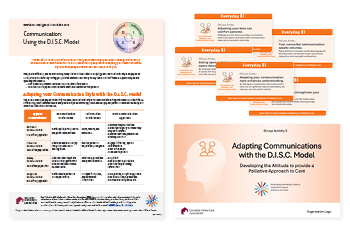
Decision-Making and Reality Testing (package)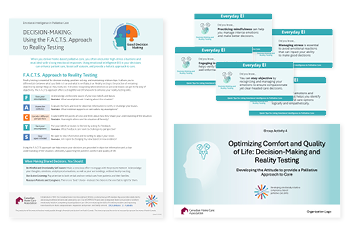
Interpersonal Relationships and Valuing Voices (package)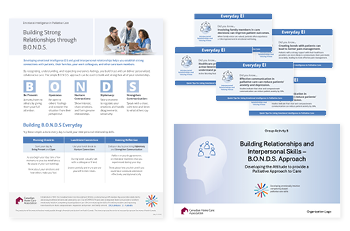
Empathy and Reframing (package)
Stress Tolerance and Shifting Your Perspective (package)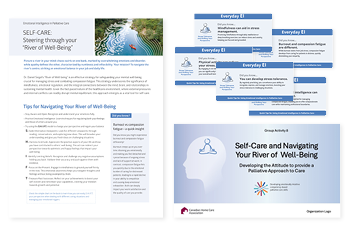
An overview of the Model for Improvement used in the SPRINT Collaborative, covering goal setting, measurement, the Plan-Do-Study-Act (PDSA) testing method, and implementation, along with key distinctions between testing for improvement, evaluation, and research.
COM-B Model for Behaviour Change
A summary of the COM-B model for behaviour change, outlining potential change ideas that teams can explore through the lenses of Capabilities, Opportunity, and Motivation.
Strategies to Address Barriers and Facilitators to Change
A summary of the COM-B model for behaviour change, outlining potential change ideas that teams can explore through the lenses of Capabilities, Opportunity, and Motivation.
Established in 1990, the Canadian Home Care Association (CHCA) is a national non-profit membership association dedicated to advancing excellence in home and community care.
National Office: 905-567-7373 | General Inquiries: chca@cdnhomecare.ca
2000 Argentia Road, Plaza 3, Suite 302. Mississauga, ON, L5N 1W1
